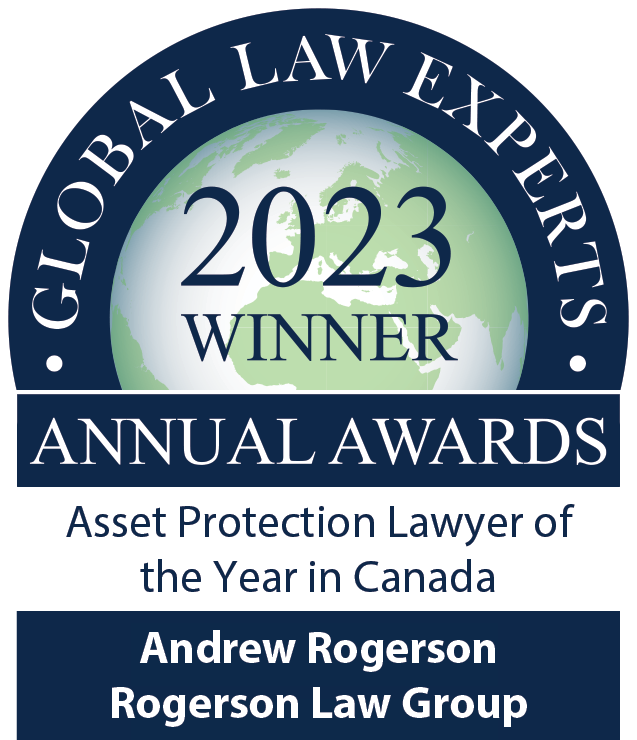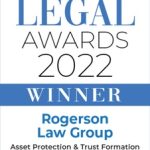Tax Collections & Liens
Tax Collections
Carrying a large tax debt owed to the Canada Revenue Agency which you cannot pay is a heavy burden to bear. However, never ignore a tax debt: the CRA is no ordinary creditor, and it has wide powers of collection and enforcement. The experienced tax lawyers at Rogerson Law Group are known for their sympathetic but strategic advice and representation for tax debtors needing urgent help.
The CRA has the legal power to collect income tax under the Income Tax Act and Excise Tax Act. Its powers are relatively draconian. However, once an appeal or objection has been lodged, the CRA’s ability to take collection action is restricted. Interest on the amount outstanding, however, will continue to be charged on the amount unpaid.
What are the CRA’s powers?
The CRA can employ different methods to collect the tax owed without having to obtain a court order. It can take action including salary garnishment. This means an amount will automatically be deducted from your wages by an employer, and paid direct to the CRA.
The CRA can seize bank accounts and other accounts; and impose property tax liens (see below). It can also withhold a payment from another government department, such as a Canada Pension plan, to pay off the tax debt. Furthermore, the CRA can intercept monies coming to you, and seize and sell your property and goods to pay the tax debt.
We strongly advise you to contact us as soon as possible regarding your tax debt. We will take full instructions and commence robust negotiations with the CRA immediately, with a view to implementing a payment plan that works for you.
Tax Lien
Has the CRA placed a lien on your property? Are you facing the prospect of a tax lien on your property? If you own a tax debt and you have not paid it, the CRA can lawfully have a tax lien placed on the legal title to your property – meaning you are in serious need of tax advice and help. Rogerson Law Group has a dedicated Tax team who are highly experienced in advising clients on Tax Liens and tax collections.
The CRA may place a tax lien over an individual’s private property by way of collecting back taxes. A tax lien on property will be imposed by the CRA only once the CRA is satisfied you have failed consistently to pay your tax debt. A tax lien in favour of the CRA takes precedence over all other lien holders. This means you cannot sell it, mortgage, or remortgage it. There is, in the majority of cases, no option other than to pay off the debt to have the lien removed.
Having a tax lien can be financially ruinous and cause serious problems with creditors. You will need to clear the debt so that the lien can be lifted.
We strongly advise you not to transfer your property into someone else’s name for the purposes of avoiding a tax lien.
We can help you with the negotiations and discussions with the CRA with a view to securing the suspension, removal or subordination of any tax liens placed on your property. We may be able to reach an agreement enabling you to sell or refinance your property, enabling you to pay the debt owed, and have the lien removed.
Breach of procedure
In some cases, it’s possible to have the tax lien reversed where, for instance, it has been filed incorrectly because proper procedure laid down by law has not been complied with. We will consider your case and the relevant paperwork to determine if the procedure was correctly followed.
In other cases, the CRA may have incorrectly based a lien on a wrong tax assessment or reassessment. If you believe the tax lien has been placed on your property incorrectly, contact us as early as possible for urgent advice as to your next steps.
Paying the debt
We can negotiate with the CRA on your behalf to arrange a payment proposal. Another option is to declare bankruptcy – but this is only possible if the amount of tax owing is more than your net assets.
Scam alert: the CRA does not demand payment of tax debts by online transfers; nor does it put individuals in jail for non-payment of taxes. If you receive threatening calls or emails purporting to be from the CRA – ignore them.
Talk to a Tax Lawyer
Contact us now - Call (416) 504 2259
We provide legal services in the entire Greater Toronto area including Toronto, Scarborough, Mississauga, Vaughan, Brampton, Richmond Hill, Etobicoke, Hamilton, Sudbury, North Bay and Barrie with offices located in Downtown Toronto and Barrie.
















